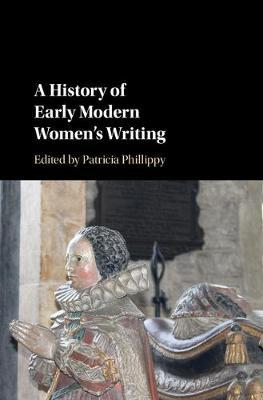Overview
A History of Early Modern Women's Writing is essential reading for students and scholars working in the field of early modern British literature and history. This collaborative book of twenty-two chapters offers an expansive, multifaceted narrative of British women's literary and textual production in the period stretching from the English Reformation to the Restoration. Chapters work together to trace the contours of a diverse body of early modern women's writing, aligning women's texts with the major literary, political, and cultural currents with which they engage. Contributors examine and take account of developments in critical theory, feminism, and gender studies that have influenced the reception, reading, and interpretation of early modern women's writing. This book explicates and interrogates significant methodological and critical developments in the past four decades, guiding and testing scholarship in this period of intense activity in the recovery, dissemination, and interpretation of women's writing.
Full Product Details
Author: Patricia Phillippy (Kingston University, London)
Publisher: Cambridge University Press
Imprint: Cambridge University Press
Dimensions:
Width: 15.90cm
, Height: 2.60cm
, Length: 23.50cm
Weight: 0.850kg
ISBN: 9781107137066
ISBN 10: 1107137063
Pages: 456
Publication Date: 18 January 2018
Audience:
Professional and scholarly
,
Professional & Vocational
Format: Hardback
Publisher's Status: Active
Availability: Manufactured on demand 
We will order this item for you from a manufactured on demand supplier.
Table of Contents
Introduction: 'sparkling multiplicity' Patricia Phillippy; Part I. Critical Approaches and Methodologies: 1. Invisibility optics: Aphra Behn, Esther Inglis and the fortunes of women's works Margaret J. M. Ezell; 2. Reconsidering the woman writer: the identity politics of Anne Cooke Bacon Jaime L. Goodrich; 3. The critical fortunes of the tenth muse: canonicity and its discontents Patricia Pender; 4. When we swear to tell the truth: the Carleton Debates and archival methodology Megan Matchinske; Part II. The Tudor Era (1526–1603): 5. Common and competing faiths Susan M. Felch; 6. Isabella Whitney's slips: poetry, collaboration, and coterie Dana E. Lawrence; 7. Transmitting faith: Elizabeth Tudor, Anne Askew, and Jane Grey Elaine V. Beilin; 8. Humanism, religion, and early modern Englishwomen in their transnational contexts Julie D. Campbell; 9. Women in worship: continuity and change in the prayers of Elizabeth Tyrwhit and Frances Aburgavenny Micheline White; 10. Spatial texts: women as devisers of environments and iconographies Peter Davidson; Part III. The Early Stuart Period (1603–42): 11. Aemilia Lanyer's radical art: 'The Passion of Christ' Pamela J. Benson; 12. Memory, materiality and maternity in the Tanfield/Cary archive Ramona Wray; 13. Mary Wroth romances Ovid: refiguring metamorphosis and complaint in The Countess of Montgomery's Urania Clare R. Kinney; 14. Nuns' writing: translation, textual mobility and transnational networks Marie-Louise Coolahan; 15. Motherhood and women's writing in early seventeenth-century England: legacies, catechisms, and popular polemic Paula McQuade; 16. Monuments and memory Peter Sherlock; Part IV. Civil War, Interregnum, and Restoration (1642–76): 17. Prophecy, power, and religious dissent W. Scott Howard; 18. Coteries, circles, networks: the Cavendish Circle and Civil War women's writing Sarah C. E. Ross; 19. Inventing fame Jane B. Stevenson; 20. Political writing across borders Mihoko Suzuki; 21. English women's writing and indigenous medical knowledge in the early modern Atlantic world Edith Snook; 22. Lady Anne Clifford's Great Books of Record: remembrances of a dynasty Jessica L. Malay.
Reviews
'A thought-provoking and carefully organized collection ... the quality of the scholarship within this frame will lend itself fruitfully to all scholars working on women writers in this or any period but may be especially productive for advanced graduate students and young scholars finding their own footing in the field.' Julie A. Chappell, Renaissance Quarterly
Author Information
Patricia Phillippy is Professor of English Literature at Kingston University London. She has published widely in early modern literature and culture, with a special focus on women's writing. Her books include Women, Death and Literature in Post-Reformation England (Cambridge 2002), Painting Women: Cosmetics, Canvases, and Early Modern Culture (2006), and Shaping Remembrance from Shakespeare to Milton (Cambridge, forthcoming). She has edited the writings of Elizabeth Cooke Hoby Russell for The Other Voice in Early Modern Europe series.
Tab Content 6
Author Website:
Customer Reviews
Recent Reviews
No review item found!
Add your own review!
Countries Available
All regions
|




